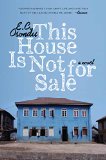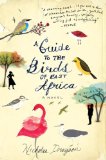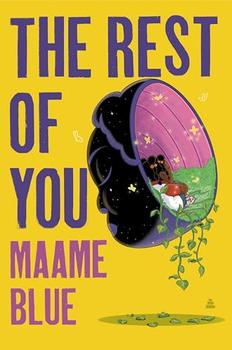Summary | Excerpt | Reviews | Beyond the book | Read-Alikes | Genres & Themes | Author Bio

A Novel
by Ngugi wa Thiong'oFrom the exiled Kenyan novelist, playwright, poet, and literary critic--a magisterial comic novel that is certain to take its place as a landmark of postcolonial African literature.
In exile now for more than twenty years, Ngugi wa Thiong’o has become one of the most widely read African writers of our time, the power and scope of his work garnering him international attention and praise. His aim in Wizard of the Crow is, in his own words, nothing less than “to sum up Africa of the twentieth century in the context of two thousand years of world history.”
Commencing in “our times” and set in the “Free Republic of Aburiria,” the novel dramatizes with corrosive humor and keenness of observation a battle for control of the souls of the Aburlrian people. Among the contenders: His High Mighty Excellency; the eponymous Wizard, an avatar of folklore and wisdom; the corrupt Christian Ministry; and the nefarious Global Bank. Fashioning the stories of the powerful and the ordinary into a dazzling mosaic, Wizard of the Crow reveals humanity in all its endlessly surprising complexity.
Informed by richly enigmatic traditional African storytelling, Wizard of the Crow is a masterpiece, the crowning achievement in Ngugi wa Thiong’o’s career thus far.
1
There were many theories about the strange illness of the second Ruler of the Free Republic of Aburiria, but the most frequent on people's lips were five.
The illness, so claimed the first, was born of anger that once welled up inside him; and he was so conscious of the danger it posed to his well-being that he tried all he could to rid himself of it by belching after every meal, sometimes counting from one to ten, and other times chanting ka ke ki ko ku aloud. Why these particular syllables, nobody could tell. Still, they conceded that the Ruler had a point. Just as offensive gases of the constipated need to be expelled, thus easing the burden on the tummy, anger in a person also needs a way out to ease the burden on the heart. This Ruler's anger, however, would not go away, and it continued simmering inside till it consumed his heart. This is believed to be the source of the Aburirian saying that ire is more corrosive than fire, for it once ...
Wizard is a vast, sprawling, satirical allegory, written in 6 parts, which is already being considered by many to be Ngugi wa Thiong'o's magnus opus. Some reviewers feel that it is overly long and repetitious and a tad didactic, but that is perhaps to lose sight of the fact that it wasn't written in a Western language or, in the first instance, for a Western audience, but for a Kenyan audience still familiar with the oral tradition - in Kenya his works are often read aloud over a period of (many!) days...continued
Full Review
 (786 words)
(786 words)
(Reviewed by BookBrowse Review Team).
Ngugi wa Thiong'o (pronounced GU-gi wa-ti-ONG-go) was born into a large peasant family, in the Kiambu district of Kenya in 1938. He was the fifth child of the third of his father's four wives and is of Kikuyu descent. He was baptized James Ngugi, and later became a devout Christian while at missionary school; but around 1967 he rejected his baptismal name, and changed his name to Ngugi wa Thiong'o. His family was caught up in the Mau Mau rebellion (an insurgency by Kenyan freedom fighters against the British colonial administration (1952 - 1960) during which ...

If you liked Wizard of the Crow, try these:

by E.C. Osondu
Published 2016
A vivid, fully imagined portrait of an extraordinary African family and the house that holds them together.

A Guide to the Birds of East Africa
by Nicholas Drayson
Published 2009
A beguiling novel that does for contemporary Kenya and its 1,000 species of birds what Alexander McCall Smith’s Ladies Detective series does for Botswana




There is no worse robber than a bad book.
Click Here to find out who said this, as well as discovering other famous literary quotes!